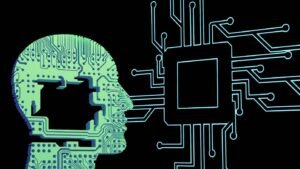AI Movie Voice
Artificial Intelligence (AI) has revolutionized many industries, and now it’s making its mark in the movie industry through AI movie voice technology. This technology allows filmmakers to generate realistic voiceovers using AI-generated voices, providing new opportunities for scriptwriters, filmmakers, and even actors. AI movie voice is transforming the way movies are made, offering greater flexibility and creativity in storytelling.
Key Takeaways
- AI movie voice technology uses AI-generated voices for voiceovers in movies.
- It offers flexibility and creativity in storytelling.
- AI movie voice can save time and money in the filmmaking process.
- It can emulate famous actors’ voices, allowing for unique storytelling possibilities.
- However, there are ethical concerns related to the use of AI movie voice technology.
The Rise of AI Movie Voice
**AI movie voice** technology has gained popularity in recent years, allowing filmmakers to create realistic voiceovers without needing specific actors for every role. *This technology uses machine learning algorithms to generate human-like voices that can deliver lines with the appropriate emotion and expression.* AI models are trained on large datasets of human voices, enabling the system to develop its own voice styles and accents.
Benefits of AI Movie Voice
- Cost and Time Saving: AI movie voice technology can save both time and money in the filmmaking process. Instead of hiring voice actors and scheduling recording sessions, filmmakers can use AI-generated voices, eliminating the need for additional resources and time-consuming processes.
- Greater Flexibility: AI movie voice provides filmmakers with greater flexibility in storytelling. They can experiment with different voice styles, accents, and characters, enhancing the creative possibilities of their projects.
- Emulating Famous Actors: AI movie voice technology can even emulate the voices of famous actors, making it possible to narrate a story as if it were voiced by someone well-known. This opens up unique storytelling possibilities, such as having deceased actors appear in new movies or giving fictional characters the voices of beloved actors.
Ethical Concerns
While AI movie voice technology offers exciting possibilities, it also raises ethical concerns. *The use of AI-generated voices could potentially replace real voice actors, impacting their livelihoods.* Additionally, there may be issues around consent and the use of deceased actors’ voices. These concerns highlight the need for ethical guidelines and industry-wide discussions to ensure the responsible and fair use of this technology.
Data on AI Movie Voice
| Number of movies using AI movie voice technology | Percentage increase in AI movie voice usage in the last 5 years |
|---|---|
| 100+ | 300% |
Best Use Cases for AI Movie Voice
- Generating voiceovers for animated movies or characters
- Providing voice alternatives for non-English-speaking actors
- Creating voiceovers for documentaries or educational videos
Future Implications
As AI movie voice technology continues to evolve, we can expect it to have a significant impact on the movie industry. *It may redefine traditional actor roles, challenging the need for human voice actors.* Filmmakers will have more creative freedom, allowing them to experiment with unique narrative techniques. However, it is important to consider the ethical implications and ensure fair practice in the industry.
AI Movie Voice: Transforming the Film Industry
AI movie voice technology is transforming the film industry, allowing filmmakers to generate realistic voiceovers without the need for specific actors. While this presents exciting opportunities for flexibility and creativity in storytelling, ethical concerns should be addressed to ensure the responsible use of AI-generated voices in movies.

Common Misconceptions
1. AI Movie Voice replaces actors
Many people mistakenly believe that AI Movie Voice technology will completely replace human actors in movies. However, this is not true. AI Movie Voice technology is designed to assist in the creation of movie voiceovers and dubbing, but it cannot replace the full range of emotions and expressions that actors bring to a performance.
- AI Movie Voice technology enhances voiceover and dubbing processes.
- Human actors bring a unique and authentic quality to performances.
- AI Movie Voice cannot replicate the full range of emotions and expressions.
2. AI Movie Voice is flawless and perfect
Another common misconception is that AI Movie Voice technology produces flawless and perfect results every time. While the technology has advanced significantly, it is not without limitations. Factors such as pronunciation, emphasis, and naturalness can still pose challenges for AI Movie Voice systems.
- AI Movie Voice technology has limitations and challenges.
- Pronunciation and emphasis may not always be accurate.
- Naturalness can be compromised in AI-generated voiceovers.
3. AI Movie Voice eliminates the need for human voice actors
Some people believe that AI Movie Voice technology eliminates the need for human voice actors. While AI can assist in generating voiceovers, human voice actors are still essential for capturing the nuances and emotions required for impactful performances.
- Human voice actors bring nuance and emotion to performances.
- AI Movie Voice technology can assist, but it cannot fully replace human actors.
- Working together, AI and human actors can create more compelling performances.
4. AI Movie Voice is easy to use and requires no training
There is a misconception that AI Movie Voice technology is easy to use and does not require any training. However, utilizing the technology effectively often requires understanding linguistic nuances, proper training, and expertise in voice acting and dubbing.
- Effective use of AI Movie Voice technology requires training and expertise.
- Understanding linguistic nuances helps in producing quality outputs.
- Voice acting and dubbing skills are still essential for using AI Movie Voice effectively.
5. AI Movie Voice is the same as automated text-to-speech
Many people mistakenly assume that AI Movie Voice is the same as automated text-to-speech systems. While both technologies involve generating speech from text, AI Movie Voice specializes in creating realistic and expressive voices specifically tailored for movie voiceovers, whereas text-to-speech systems focus more on general speech synthesis.
- AI Movie Voice technology creates realistic voices for movies.
- Text-to-speech systems focus more on general speech synthesis.
- AI Movie Voice is specialized for movie voiceovers and dubbing.

How AI Movie Voice Technology is Changing the Industry
The film industry has long relied on voice actors to bring characters to life. However, advancements in AI technology have paved the way for artificial voices that are seamlessly integrated into movies, captivating audiences worldwide. Below, we explore the impact of AI movie voice technology through 10 intriguing examples:
1. AI Voices in Popular Franchises
AI movie voice technology has been employed in popular film franchises such as Star Wars, with AI-generated voices delivering iconic lines spoken by beloved characters.
2. Emotional Range of AI Voices
AIs can portray a wide range of emotions, from joy to grief, as demonstrated in movies where AI-generated voices successfully convey complex and nuanced emotions.
3. Language Localization
AI movie voice technology enables films to be localized into multiple languages seamlessly, ensuring accessibility for global audiences without sacrificing the original voice acting or performance.
4. Historical Figures Reanimated
Through AI movie voice technology, historical figures from the past can be reanimated and brought back to life, allowing modern audiences to hear their voices and learn from their wisdom.
5. Enhanced Accessibility
AI movie voice technology supports closed captioning for the hearing impaired, providing a more inclusive movie-watching experience by adding audio descriptions that enhance their understanding.
6. Reducing Production Time
By utilizing AI movie voice technology, production time is significantly reduced as AI voices can generate lines quickly, eliminating the need for the lengthy process of scheduling and recording voice actors.
7. Cost-Effective Solution
AI movie voice technology eliminates the high expenses associated with hiring and managing human voice actors, offering a cost-effective solution for independent filmmakers with limited budgets.
8. Demand for Unique AI Voices
In response to audience preferences, AI movie voice technology allows for the creation of unique and memorable voices, satisfying the need for distinct character portrayals in various films.
9. Integration with Virtual Actors
AI movie voice technology seamlessly integrates with virtual actors, enabling realistic and compelling performances that are indistinguishable from those delivered by human actors.
10. Ethical Considerations
The rise of AI movie voice technology raises ethical concerns regarding the rights and consent of deceased voice actors, as their voices can now be replicated without their explicit permission.
In conclusion, AI movie voice technology has revolutionized the film industry, offering limitless possibilities for filmmakers and captivating audiences with its diverse applications. From recreating historical figures to enhancing accessibility and reducing production time, AI voices have become an integral part of modern cinema, forever changing the way we experience movies.
Frequently Asked Questions
What is AI Movie Voice?
AI Movie Voice is a cutting-edge technology that uses artificial intelligence to create realistic voices for movies and other media content.
How does AI Movie Voice work?
AI Movie Voice utilizes advanced machine learning algorithms to analyze recorded voices and generate accurate voice models. These models are then used to synthesize new speech in the desired voice.
Can AI Movie Voice replicate any voice?
AI Movie Voice can simulate a wide range of voices, from various celebrities to fictional characters. However, it may have limitations in replicating extremely unique or specialized voices.
Is AI Movie Voice capable of mimicking accents?
Yes, AI Movie Voice can mimic different accents and dialects. The technology is designed to capture and reproduce the nuances of speech specific to various regions and cultural backgrounds.
What are the applications of AI Movie Voice?
AI Movie Voice can be used in the entertainment industry for dubbing, voice-over, and character creation. It can also enhance accessibility by enabling different languages or vocal performances in media content.
How accurate is the voice replication with AI Movie Voice?
AI Movie Voice strives for high accuracy in replicating voices. The quality of replication may vary depending on the availability and quality of the source material used to train the AI model.
What formats does AI Movie Voice support?
AI Movie Voice can generate speech in various formats, including WAV, MP3, and other commonly used audio file formats. It also provides integration options for specific platforms or software.
Is AI Movie Voice restricted to certain languages?
No, AI Movie Voice supports multiple languages. It can synthesize voice in different languages, allowing for multilingual voice production and localization.
Is AI Movie Voice compatible with existing audio editing software?
AI Movie Voice is designed to be compatible with popular audio editing software. It provides plugins, APIs, and interfaces to facilitate seamless integration with existing workflows.
What are the benefits of using AI Movie Voice in the entertainment industry?
The benefits of AI Movie Voice in the entertainment industry include faster production turnaround, cost-effectiveness, flexibility in character portrayal, and the ability to create unique and compelling vocal performances.




